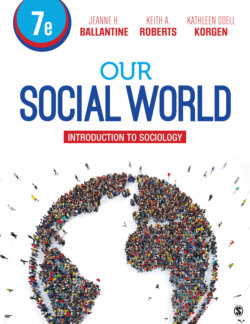Читать книгу Our Social World - Kathleen Odell Korgen - Страница 75
На сайте Литреса книга снята с продажи.
Rational Choice (Exchange) Theory.
ОглавлениеAccording to rational choice theory, humans are fundamentally concerned with self-interests, making rational decisions based on weighing costs and rewards of the projected outcome of an action. Someone from this perspective would say Hector would picture the situation as if it were a mental balance sheet: For example, on the plus side, staying in school may lead to opportunities not available to the uneducated. On the minus side, school is a negative experience, and the family needs help to feed its members now, so going to school is a “waste of time.” Which side will win depends on Hector’s balance sheet and on family and friends’ influence over the rewards versus costs.
Rational choice theory, also called exchange theory, has its roots in several disciplines—economics, behavioral psychology, anthropology, and philosophy (Cook, O’Brien, and Kollock 1990). Social behavior is seen as an exchange activity—a transaction in which resources are given and received (Blau 1964; Homans 1974). Every interaction involves an exchange of something valued: money, time, material goods, attention, sex, allegiance, and so on. People stay in relationships because they get something from the exchange, and they leave relationships that have more costs than benefits for them. They constantly evaluate whether there is reciprocity or balance in a relationship, so that they are receiving as much as they give. Simply stated, people are more likely to act if they see some reward or success coming from their behavior. The implication is that self-interest for the individual is the guiding element in human interaction.
▲ According to rational choice theory, people avoid cost or pain and seek benefits. Thus, people in authority try to control others—like this woman—by imposing cost for behaviors that are unwanted. The cost for this woman for speeding is an expensive ticket, and the city council and police hope it will lead to more desired behaviors in her future.
© iStock/Pamela Moore
In summary, rational choice theory involves the following key ideas:
Human beings are mostly self-centered, and self-interest drives their behavior.
Humans calculate costs and benefits (rewards) in making decisions.
Humans are rational in that they weigh choices to maximize their own benefits and minimize costs.
Every interaction involves exchanges entailing rewards and penalties or expenditures.
A key element in exchanges is reciprocity—a balance in the exchange of benefits.
People keep a mental ledger in their heads about whether they owe someone else or that person owes them.
